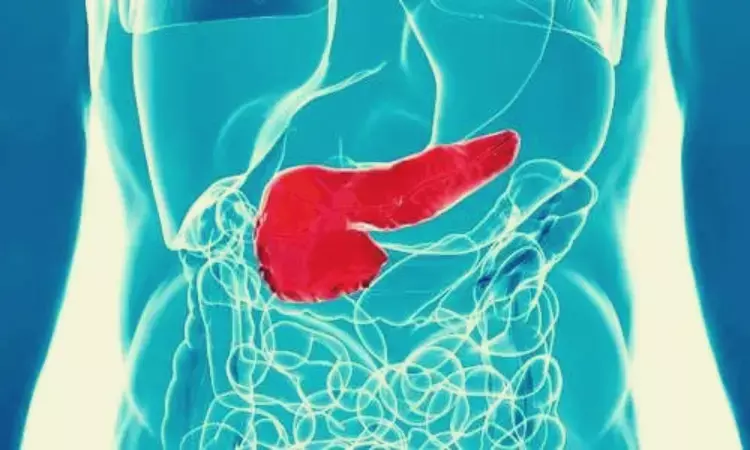- Home
- Medical news & Guidelines
- Anesthesiology
- Cardiology and CTVS
- Critical Care
- Dentistry
- Dermatology
- Diabetes and Endocrinology
- ENT
- Gastroenterology
- Medicine
- Nephrology
- Neurology
- Obstretics-Gynaecology
- Oncology
- Ophthalmology
- Orthopaedics
- Pediatrics-Neonatology
- Psychiatry
- Pulmonology
- Radiology
- Surgery
- Urology
- Laboratory Medicine
- Diet
- Nursing
- Paramedical
- Physiotherapy
- Health news
- Fact Check
- Bone Health Fact Check
- Brain Health Fact Check
- Cancer Related Fact Check
- Child Care Fact Check
- Dental and oral health fact check
- Diabetes and metabolic health fact check
- Diet and Nutrition Fact Check
- Eye and ENT Care Fact Check
- Fitness fact check
- Gut health fact check
- Heart health fact check
- Kidney health fact check
- Medical education fact check
- Men's health fact check
- Respiratory fact check
- Skin and hair care fact check
- Vaccine and Immunization fact check
- Women's health fact check
- AYUSH
- State News
- Andaman and Nicobar Islands
- Andhra Pradesh
- Arunachal Pradesh
- Assam
- Bihar
- Chandigarh
- Chattisgarh
- Dadra and Nagar Haveli
- Daman and Diu
- Delhi
- Goa
- Gujarat
- Haryana
- Himachal Pradesh
- Jammu & Kashmir
- Jharkhand
- Karnataka
- Kerala
- Ladakh
- Lakshadweep
- Madhya Pradesh
- Maharashtra
- Manipur
- Meghalaya
- Mizoram
- Nagaland
- Odisha
- Puducherry
- Punjab
- Rajasthan
- Sikkim
- Tamil Nadu
- Telangana
- Tripura
- Uttar Pradesh
- Uttrakhand
- West Bengal
- Medical Education
- Industry
Pancreas volume and liver fat related to risk of developing diabetes: Study

UK: A recent study published in the journal Diabetes Care has identified novel risk factors for type 2 diabetes (T2D). The results showed that a smaller pancreas volume and higher liver fat levels were related to a higher risk of developing type 2 diabetes.
"Our findings are helpful in understanding the causal role of ectopic fat in the pancreas and liver and organ volume in the pathophysiology of type 1 and 2 diabetes," Hanieh Yaghootkar, University of Westminster, London, U.K., and colleagues wrote in their study.
In observational studies, fat content and volume of the pancreas and liver are shown to be associated with diabetes risk. However, if these associations are causal is not known. Dr. Yaghootkar and the team, therefore, conducted Mendelian randomization (MR) study to examine the causality of such associations.
For this purpose, the researchers used genetic variants associated with the exposures (liver and pancreas volume and fat content) using MRI scans of UK Biobank participants (n = 32,859). Summary-level data was obtained for risk of type 1 (9,358 cases) and type 2 (55,005 cases) diabetes from the largest available genome-wide association studies.
Following were the study's key findings:
- Observationally, liver fat and volume were associated with type 2 diabetes (odds ratio per 1 SD higher exposure 2.16 and 2.11, respectively).
- Pancreatic fat was associated with type 2 diabetes (1.42) but not type 1 diabetes, and pancreas volume was negatively associated with type 1 diabetes (0.42) and type 2 diabetes (0.73).
- MR analysis provided evidence only for a causal role of liver fat and pancreas volume in risk of type 2 diabetes (1.27 or 27% increased risk and 0.76 or 24% decreased risk per 1SD, respectively) and no causal associations with type 1 diabetes.
"Our findings assist in understanding the causal role of ectopic fat in the liver and pancreas and of organ volume in the pathophysiology of type 1 and 2 diabetes," the authors concluded.
Reference:
Susan Martin, Elena P. Sorokin, E. Louise Thomas, Naveed Sattar, Madeleine Cule, Jimmy D. Bell, Hanieh Yaghootkar; Estimating the Effect of Liver and Pancreas Volume and Fat Content on Risk of Diabetes: A Mendelian Randomization Study. Diabetes Care 2021; dc211262. https://doi.org/10.2337/dc21-1262
Dr Kamal Kant Kohli-MBBS, DTCD- a chest specialist with more than 30 years of practice and a flair for writing clinical articles, Dr Kamal Kant Kohli joined Medical Dialogues as a Chief Editor of Medical News. Besides writing articles, as an editor, he proofreads and verifies all the medical content published on Medical Dialogues including those coming from journals, studies,medical conferences,guidelines etc. Email: drkohli@medicaldialogues.in. Contact no. 011-43720751


